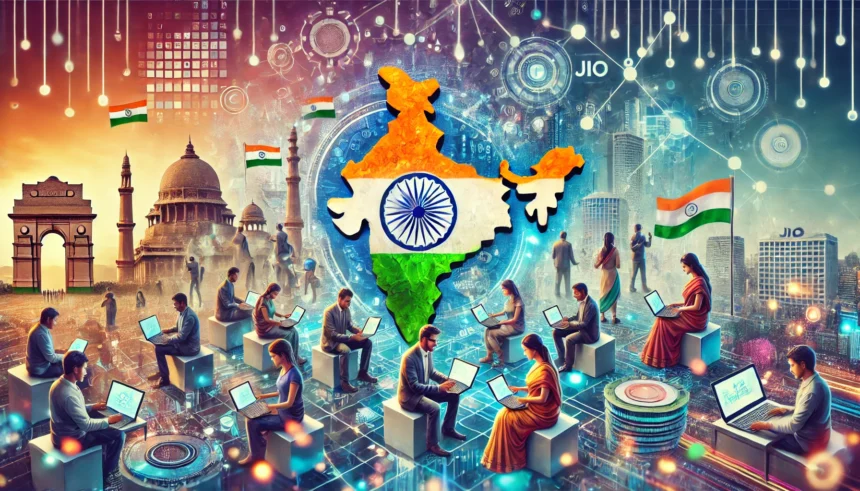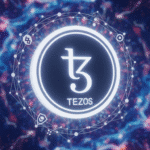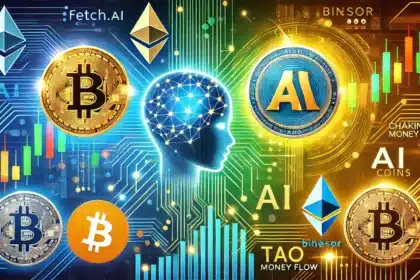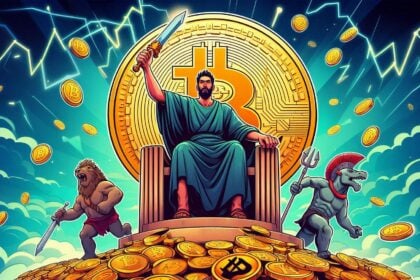One of India’s biggest telecoms providers, Jio Platforms, owned by Reliance Industries, has entered into a memorandum of understanding with Polygon Labs to deliver Web3 to Jio’s base of over 450 million people. This partnership is expected to transform the Indian digital landscape in the next few years, as the officials stated on Thursday.
Kiran Thomas, the CEO of Jio Platforms, appeared to endorse the move as a remarkable achievement towards satisfying the company’s objective of improving the delivery of digital services. One of Polygon Labs’ main specialties is blockchain; therefore, it will assist Jio in incorporating innovative Web3 products into its systems.
“With this collaboration, we will be able to embrace all the possibilities of Web3 and provide our users with the best digital services,” Thomas added.
The initiative reveals the increasing focus of Indian companies in driving the decentralized web using Web3 tools to provide users with more significant control of their data and activities.
What Jio Platforms and Polygon Offer the Table
The collaboration between Jio Platforms and Polygon Labs is timely as India is today experiencing a high growth rate in the technology sector, particularly due to cheap mobile data and rising Smartphone usage.
Using Polygon, Indian entrepreneur Sandeep Nailwal has created a company with scalable blockchain solutions that is already an example for the world. Polygon wants to bring the idea of Web3 to a whole new level in India with the help of Jio.
“It means that Web3 is gradually being adopted in India.” I have very positive impressions about cooperation with Jio in introducing blockchain solutions to millions of customers,” Nailwal said in a statement.

Jio Platforms Ltd, headed by Mukesh Ambani, is no newbie to this innovation culture. Having once shaken the Indian telecom market by introducing cheap data tariff plans, the company is preparing to bring Web3 to millions of its users. This partnership will specifically target the embedding of dApps and Blockchain services into the existing Jio system.
Why Web3 Matters to India’s Digital Future
Web3 is merely the third generation of the social interface of the interconnected web-based on decentralization of control of resources and user power. Unlike a typical Web2 approach that keeps data belonging to a platform on its server, Web3 deploys blockchain for decentralized storage. This approach makes for transparency, security, as well as increased control by the users.
Given the vibrant Indian start-up technology ecosystem along with a young and fast-growing internet-using population, India is ready for Web3. The center also said in a report by Nasscom it should host over 50 million Web3 users by 2030.
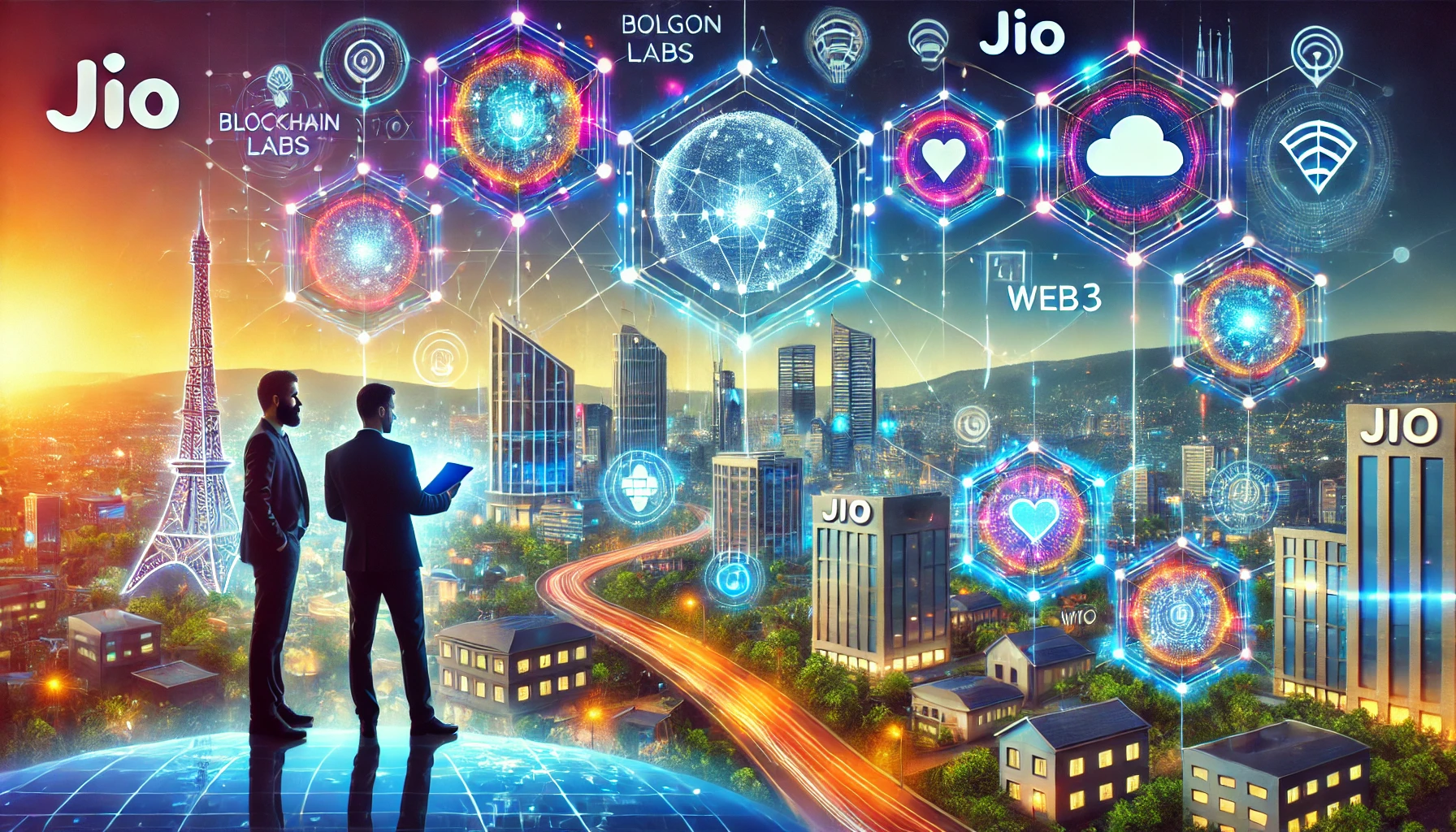
Jio’s partnership with Polygon aligns with this vision, offering several potential benefits:
- Enhanced Digital Services: For Jio platforms, it means that it can unfold various blockchain features like Secure Digital Identity, Transparent Supply Chain Solution, as well as DeFi.
- Boost to Startups: The Web3 Application might transform Indian Startups to develop new solutions that will enrich the growing digital economy of India.
- Global Recognition: The synergy is a way of putting India at the forefront of organizations that are championing the adoption of blockchain technology, thus encouraging similar practices amongst other comparable emerging markets.
Despite these achievements, many obstacles appear in front of blockchain, such as changing legal aspects and the lack of public understanding regarding blockchain.
An Important Step in Jio’s Digital India Vision
This partnership will, in fact, emphasize Jio’s mission of furthering the digital transformation of India. For several years, Jio ventured from being a mere telecom company to offering services across multiple sectors, including e-commerce, digital payments, and entertainment, among others.
Using Polygon’s understanding of the blockchain sectors, Jio platforms hope to develop an inclusive Web3 ecosystem that will benefit users and companies. While specific details of the collaboration have not been disclosed, analysts believe the partnership will focus on:
- Digital Wallets and Tokenization: Enabling users to store and exchange assets with secure methods.
- Decentralized Content Platforms: Encouraging copyright owners to increase the role of Autonomous Sensory Meridian Integration in their creations.
- Smart City Solutions: Applying of blockchain for optimal management of cities.
Reliance Industries’ chairman Mukesh Ambani has been speaking time and time again about technology as a way towards the future of India.
Conclusion: A Giant Leap for Web3 in India
It is an important step on the Indian terrain as it connects two giants of the digital industry – Jio Platforms and Polygon Labs. Through the ideas in blockchain, Jio platforms want to introduce diverse services that are suitable for its 450 million customers.
With obstacles like infrastructure and education still out of reach, this partnership is an example to other business entities to discover more about Web3. Given that India is on the brink of elevating itself as a digital superpower of the world, such tie-ups are sure to hold a strategic charm to its future. Keep following The Bit Journal and keep an eye on Jio platform’s next partnership.
Frequently Asked Questions (FAQs)
What is Web3, and how is it different from Web2?
Web3 is the next evolution of the internet, built on decentralized technologies like blockchain. Unlike Web2, which relies on centralized platforms that control user data, Web3 gives users more ownership, privacy, and control over their digital activities.
What is Polygon, and how does it relate to Web3?
Polygon (formerly Matic) is a Layer 2 Ethereum scaling solution that makes blockchain transactions faster and cheaper. It helps developers build decentralized applications (dApps), making Web3 more efficient and accessible.
What does Jio gain from this partnership?
Jio will be able to integrate blockchain services into its digital ecosystem, including tokenization, secure digital identity, decentralized apps (dApps), and smart city solutions—ultimately enhancing user experience and digital service delivery.
What are the potential challenges of this partnership?
The main obstacles include lack of regulatory clarity in India, low public awareness of blockchain, and the need for infrastructure upgrades to fully support Web3 adoption.
Why is India important in the global Web3 space?
With over 800 million internet users and a thriving startup ecosystem, India is positioned to become a global hub for Web3 innovation. Reports suggest the country could have over 50 million Web3 users by 2030.
Who are the key players in this partnership?
The collaboration is between Jio Platforms, India’s largest telecom and digital services provider (owned by Reliance Industries), and Polygon Labs, a blockchain company co-founded by Indian entrepreneur Sandeep Nailwal.
What services could result from this collaboration?
Potential offerings include digital wallets, decentralized content platforms, identity solutions, tokenization services, and blockchain-powered smart city infrastructure.
Glossary of Key Terms
Web3:
The decentralized version of the internet, where users have ownership and control of their data, typically powered by blockchain technologies.
Web2:
The current mainstream version of the internet that relies on centralized servers and platforms like Google, Facebook, and Amazon.
Blockchain:
A decentralized digital ledger that securely records transactions across a network of computers, ensuring transparency and immutability.
dApps (Decentralized Applications):
Apps that run on blockchain technology instead of centralized servers allow for greater user control and transparency.
Polygon (Matic):
A Layer 2 blockchain protocol built on Ethereum, designed to offer faster and cheaper blockchain transactions for developers and users.
Tokenization:
The process of converting physical or digital assets into blockchain-based tokens that can be traded or used in decentralized ecosystems.
Smart City Solutions:
Technological systems that leverage IoT and blockchain to enhance the efficiency, sustainability, and transparency of urban infrastructure.
Digital Wallets:
Software that stores private keys for cryptocurrencies and allows users to send, receive, and manage digital assets securely.
Decentralized Identity:
A self-sovereign identity model where users control their own data without relying on a central authority, made possible through blockchain.
Reliance Industries:
A multinational conglomerate headed by Mukesh Ambani, which owns Jio Platforms and is a major player in India’s telecom and tech sectors.
Sources
Follow us on Twitter and LinkedIn and join our Telegram channel to be instantly informed about breaking news!



